“For the Sake of Old Times”
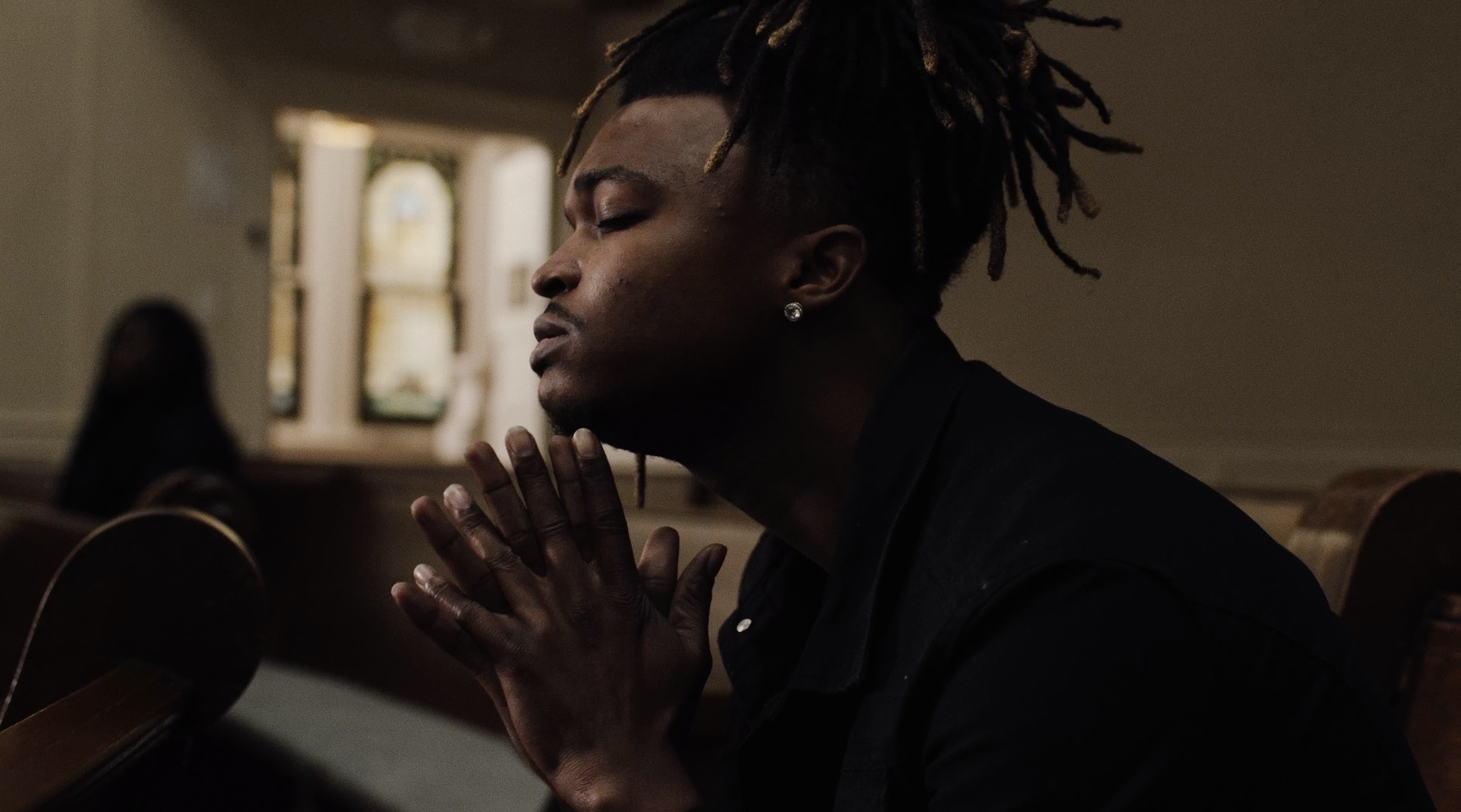
Should 2020 be forgotten?
As always, the first moments of a new year are spent singing “Auld Lang Syne,” which asks how one should respond to memories of the past: to remember or erase? But at the end of 2020, folks gathered, many in surgical masks, eager to leave behind a year with the song known more for its melody than its meaning. But then what? Where does the collective trauma go, despite the optimism that better days are magically ahead?
It’s in this historic moment of reckoning with the past that we measure the weight of our journey together.
And in Birmingham, Alabama, a place that dismantled its Confederate monument following the murder of George Floyd, 1504 collaborated with a group of community singers to reimagine “Auld Lang Syne.” The traditional Scottish poem, usually associated with booze and beads, is paired with archival imagery from the year and recorded in a church that once refused to seat any Black visitors during the city’s Civil Rights Movement. Upon completion, the short film was released by NPR and featured on “All Things Considered,” the Future of StoryTelling Podcast, and festivals around the country.
Amidst a historic season of quiet refrain, we sought to honor a time of progress and struggle that deserves to not be forgotten any time soon. To preserve these memories with a cup of kindness.
FEATURED WORK
“For the Sake of Old Times”
GALLERY
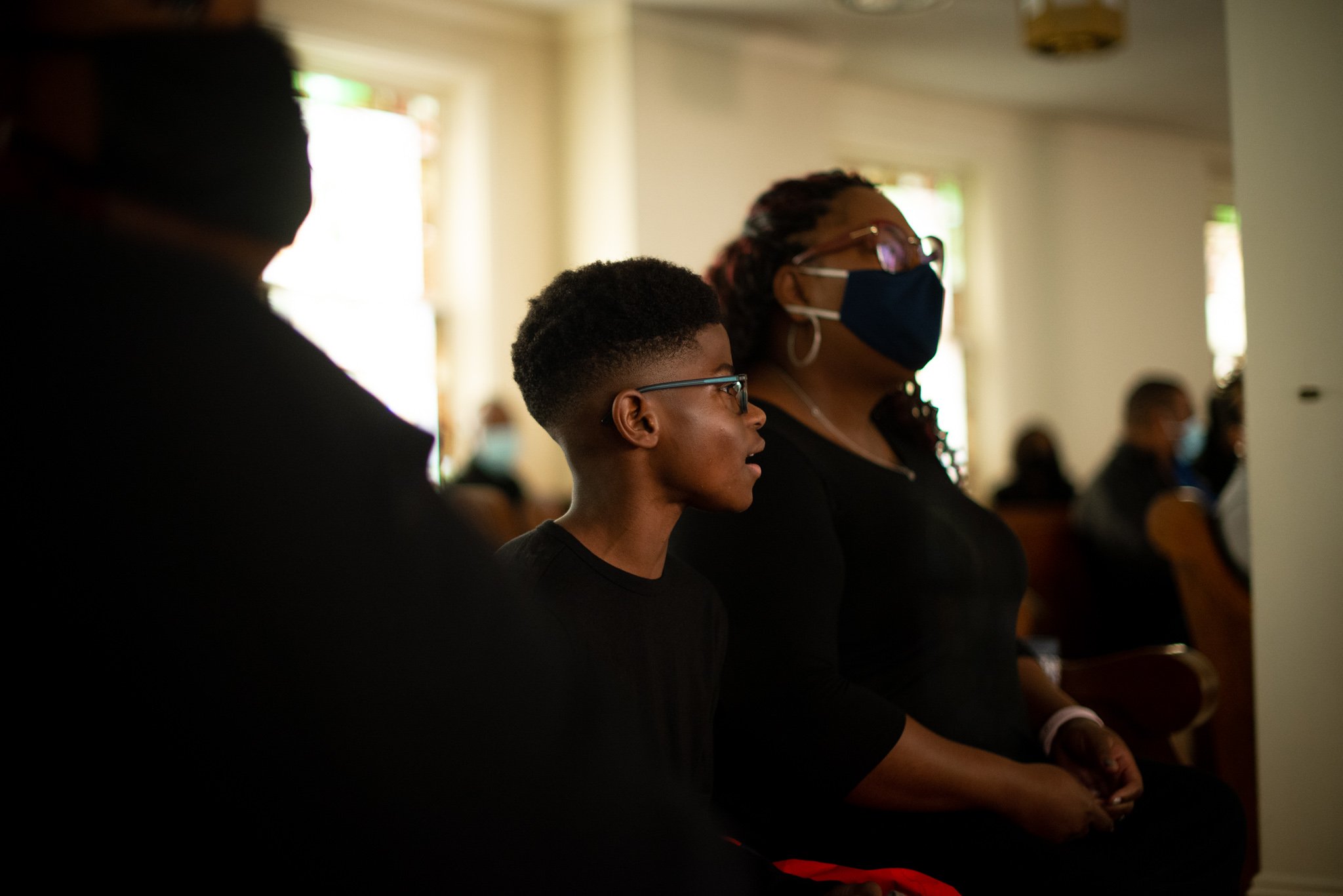
The first two singers featured are Jaxon, age 11, and his mother, Ebonee. The oldest singer, Eloise Ford Gaffney, was a voting rights activist and freedom song performer during the Civil Rights movement who was jailed for protesting in Gadsden, Alabama. Two of her classmates, Carole Robertson and Cynthia Wesley, died in the 16th Street Baptist Church bombing in Birmingham.
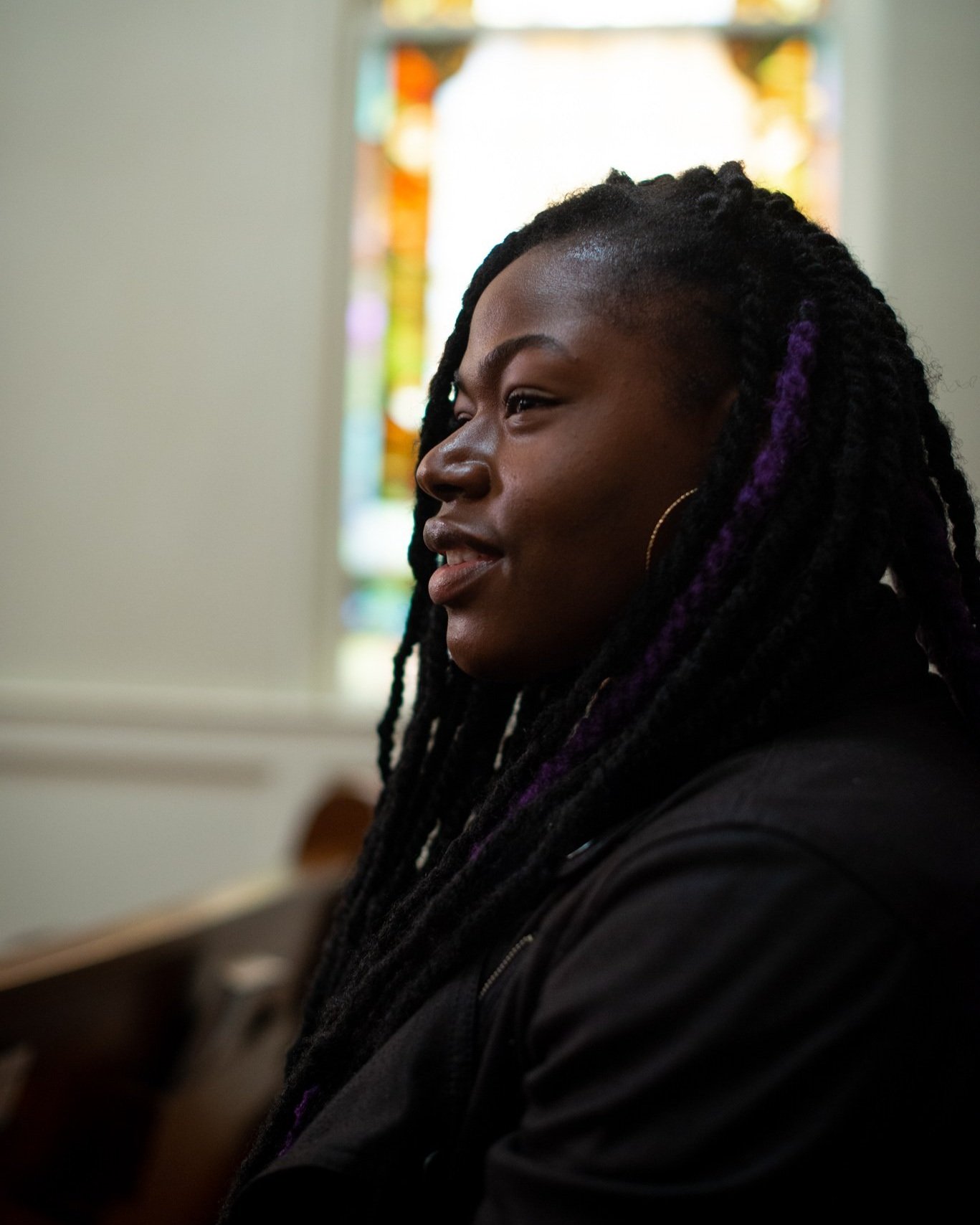

This group of local singers are performing together for the first time, coordinated by Carrie Davis. Because of COVID-19, rehearsals were not possible, so it was recorded live on site spaced throughout the sanctuary.
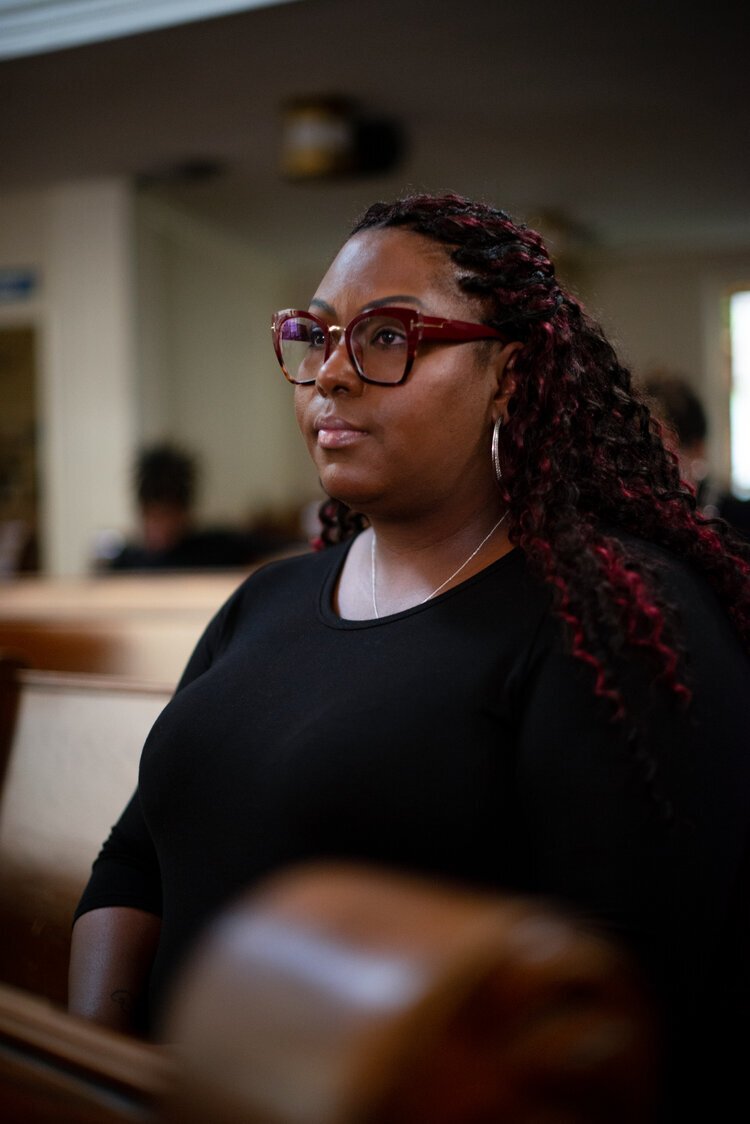

South Avondale Baptist Church is located in Birmingham, Alabama and was built in 1914, later closing in 2000. During the city’s Civil Rights movement, its white board of deacons “issued a letter saying that they would not seat African Americans attempting to attend services at the church” (Bhamwiki), so the film features each singer seated as a subtle reference to this history.
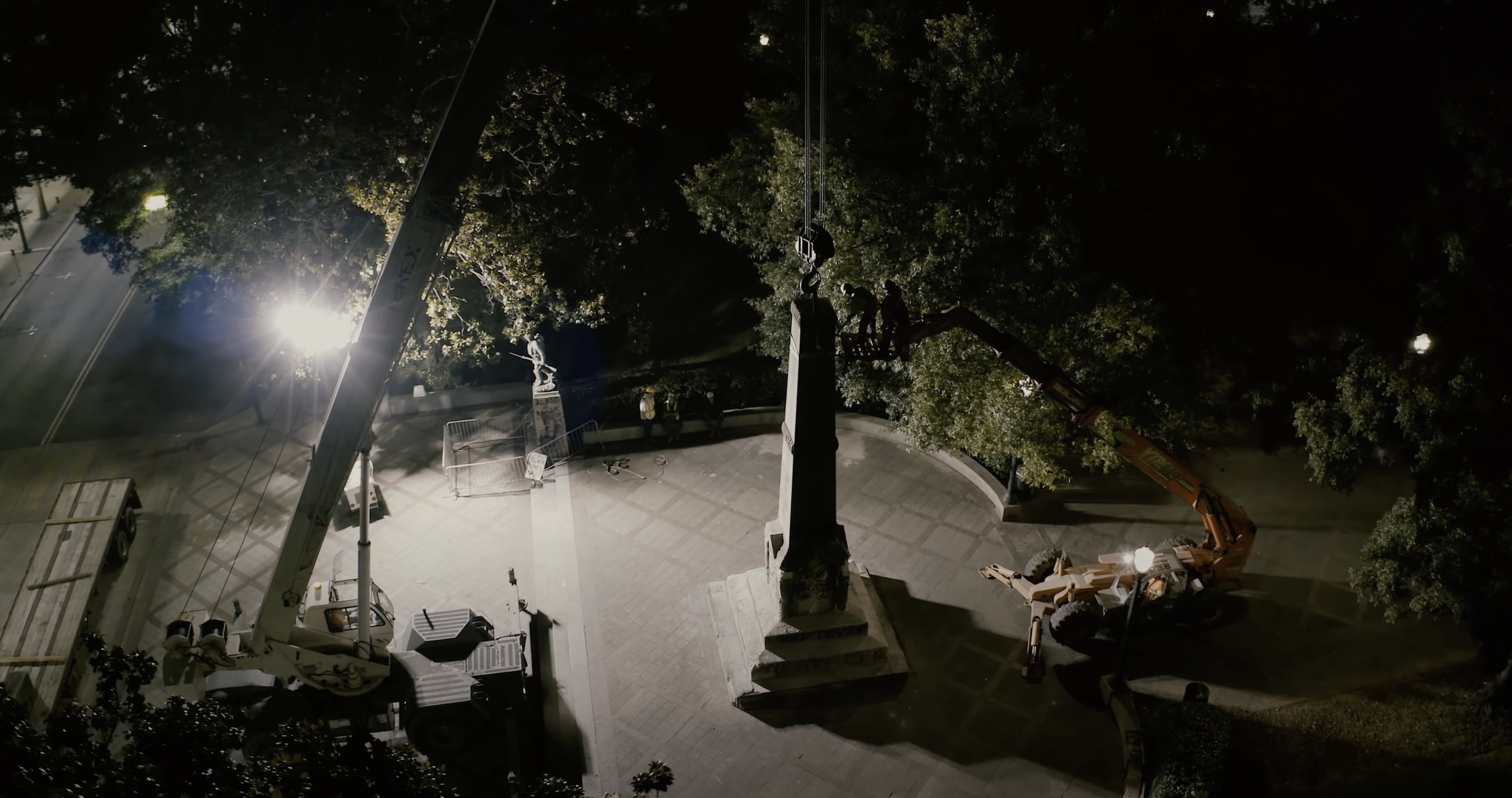
The Confederate monument was removed from Linn Park in Birmingham on June 1, 2020.
In conversation
From the pews of a church where white deacons once refused to seat African Americans, a group of Black singers in Alabama reminds us why preserving our memories of this historic year is vital — even if we'd rather just leave 2020 behind.
— Lydia Massey, NPR



